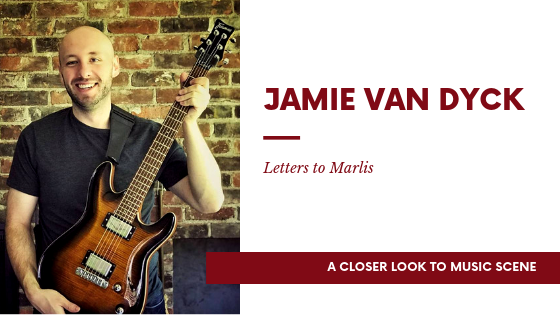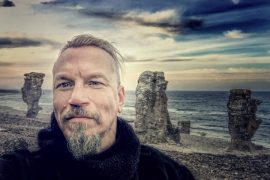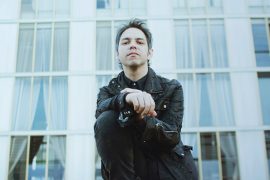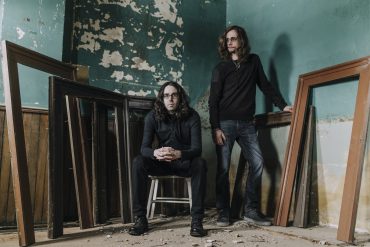Jamie van Dyck studied Music at Yale University. He is a composer, arranger, theorist and the lead guitarist for Earthside – one of the more acclaimed modern metal bands in the progressive music scene. Jaime is al these together, and also a best friend, a brother, and a passionate musician who feels the bite of anxiety and the relief of purpose every time he plays.
I want to share with you his thoughts about:
- Music theory and purpose
- The Earthside community
- The hooks of the digital music scene
- The new Earthside album
You will find some words that may resonate with you.
These are his letters.
You can also read the Spanish version
How did your passion for music start?
Do you think that is important to every musician to navigate the academic and theoretical side of music?
How being an academic helped you to develop and enhance your sound?
The soft movement
When I was 5 years old, I composed my first “symphony” which was me just banging an F Major chord as loud as I could on the piano over and over again, and then switching to an F minor chord, doing the same thing, and then doing it quietly and calling it the “soft movement” of the symphony before getting loud again.
My parents encouraged me by legitimizing these as symphonies. They were a huge part of cultivating my love for music. I remember being 3 or 4 years old, any time we drove in the car, my parents would put on a tape of Mozart, Beethoven or Bach. I wanted to be a classical composer.
When I was 10, I discovered more current popular music and rock music of the time, and pretty soon after that, my dream from then on was to be the guitarist for a rock band, a dream my parents and my younger sister have been supportive of since the day I dream it.
Frank, Earthside keyboardist, and I grew up right through the woods from each other, so he and I were also instrumental in shaping each other’s dream and building it as something we wanted to do together.
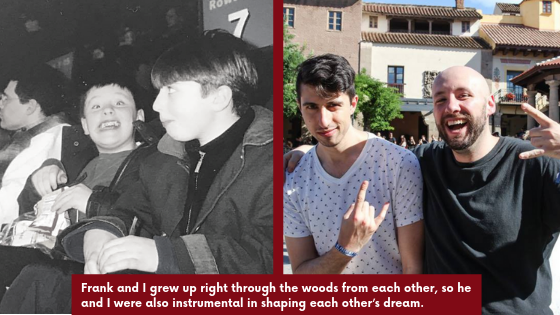
My tastes became heavier over time, and my dream crystalized more when I heard Metallica’s live S&M album with the San Francisco Symphony Orchestra which combined my childhood love of Beethoven symphonies with the heavier rock music that I was starting to get into.
The combination of heaviness, melody, musical ambition and sophistication set the stage for me to fall in love with bands like Porcupine Tree and Karnivool, which further informed my dreams as a composer and what Earthside would ultimately sound like.
Knowing about music theory doesn‘t necessarily mean you compose better so much as you’re able to compose a different way. I don’t think I could have ever composed something like Mob Mentality without having explored theory as deeply as I have and exposing myself to all these ways of conceiving music.
I think music as a whole is better served for different musicians to take different paths to cultivate their talents.
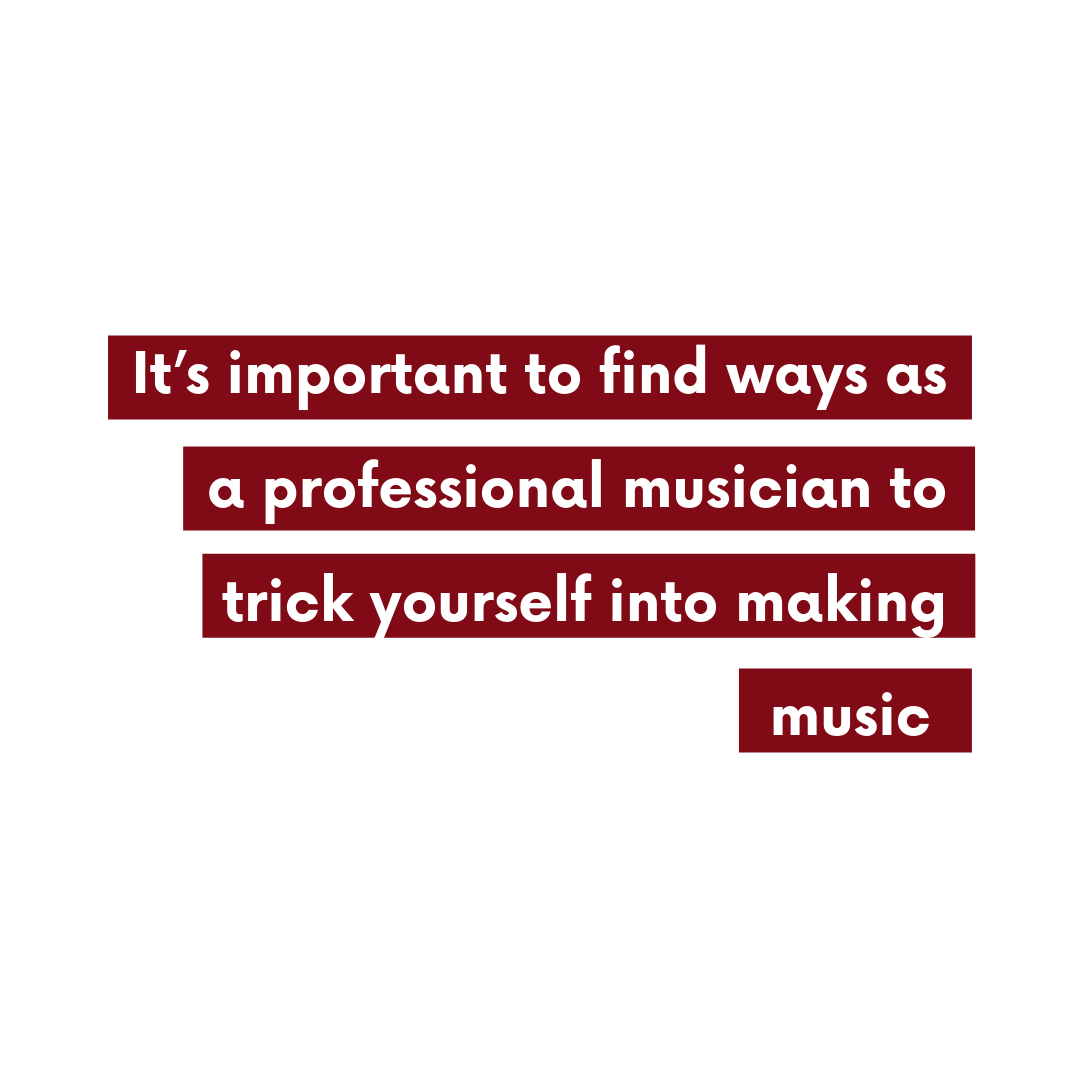
My relationship with music is more complicated now than when I was in high school having to read three chapters in my history textbook, and I instead retreated into my basement and composed a bunch of angry music about the girl I liked who didn’t like me back.
It’s important to find ways as a professional musician to trick yourself into making music and it’s harder when music «is» the thing that makes you feel pressured, cause you need to be successful.
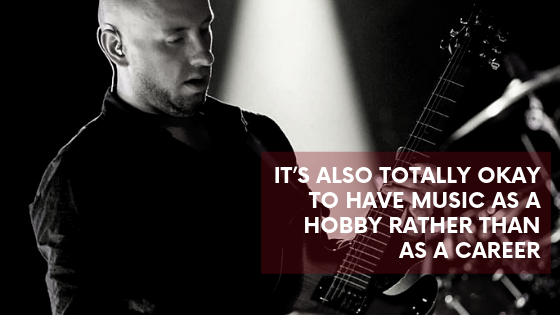
If having music as a career might tarnish your love for it due to music becoming a source of stress rather than an escape from the stress, I think it’s also totally okay to have music as a hobby rather than as a career, and just to make time for it so that it can continue to enrich your life.
Also, It’s important to be able to look back and feel that you’ve lived the life you want to live. People feel better about themselves if they know they’ve had the courage to go for something they long for and not quite achieved it than they feel if don’t have that courage and instead live their lives wondering what would have happened if only they had gone for it.
Do you think that it’s important to communicate what Earthside members do besides playing in the band?
Why being closer to the fans it is important?
Kindred Earthside spirits all around the world
Fans enjoy knowing more about the musicians they follow, especially in today’s social media world. I also think giving people a glimpse into what each member of Earthside brings to the table beyond just the instrument each of us plays, gives an honest view of how the music is made.
Introducing people to the concept that I am more than just a guitarist within Earthside or Frank is more than just a keyboardist within Earthside exposes people to a line of thinking that helps them understand us better as artists and human beings who are expressing ourselves in collaboration with each other.
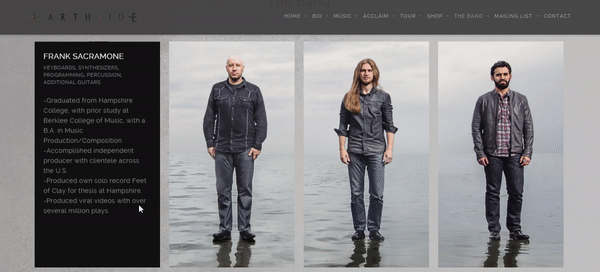
Part of connecting with our fans is also showing that we don’t see ourselves as a different sort of entity from our fans, but as passionate people, just as they are.
I would say that we don’t have constant communication with our fans, even though from a business standpoint, that might be the wiser strategy. I think for us it isn’t strategic, so much as a lot of music creation is a social outreach of expressing yourself and hoping that people will accept you for who you are.
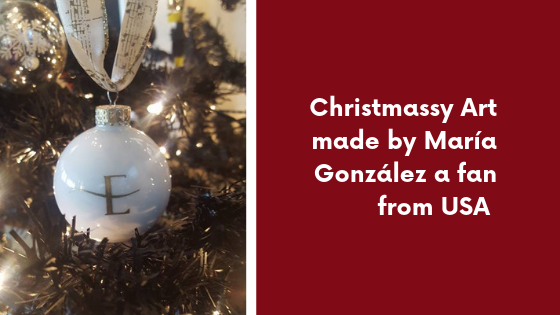
There is a major component of saying to the world, “here is my heart, can I connect with you with this expression of myself that I’ve created?” And so there’s just as much in it for ourselves as for our fans in the sense that the people with whom our music resonates form a community who love and care about music as deeply as we do.
I think it’s cool to have some people who are more intimately connected to us and others who are more peripherally connected. I post in the Earthside Facebook group rather than the page if I have something I want to share more with a diehard audience.
We’ve found kindred spirits all around the world.
Progressive music, especially the metal scene, has evolved.
Is not only about virtuosity anymore as the main attraction, instead, it’s also about creating experiences for fans through sounds and emotions.
Do you perceive this evolution in the progressive metal scene?
The hooks of the digital music scene and deeper connections
Maybe I’m needlessly pessimistic, but I feel that as music has become more commoditized in the YouTube and Spotify streaming culture of content creation, musicians generally garner attention through having an immediate hook or gimmick that gets people interested.
The current music scene is so saturated with so much out there – and it’s wonderful that now anyone has access to having an opportunity to live their dream as a musician but the consequence of that is that standing out is harder than ever before.
Having an immediate hook within a few seconds to get someone to watch your video is more important than having a full album that unfolds over time and really immerses people.
I also think with all music now a click away, people are always looking for more new music rather than becoming super intimately connected with a few records, but I’m very open-minded to being wrong about this, and I hope that you’re right!
I certainly still see some people’s primary attraction to the music they listen to being a deep emotional connection to it, and those relationships with music are so precious to me.

Organic word of mouth among friends who love certain music and share it with others is a beautiful and social way that music-loving is meant to be spread!
It takes me back to when I would discover a band in my teen years, and then share it with Frank and Ben. Or Frank and Ben would discover a band and share it with the other two of us.
If people are so enthusiastic about our music that they have to tell their friends about Earthside, and they have friends specifically in mind who would love it, that’s how the deepest musical communities form.
The best thing we can do to encourage that is to create music that inspires people, and then treat the people who love our music with kindness and appreciation, so they feel an added reward of doing something they already feel inspired to do anyway.
It certainly means a lot to me when someone comes up to us at a show or messages one of us about how the music emotionally impacted them or got them through a difficult time in their life or led them to a cathartic shedding of tears or inspired them to create music of their own.
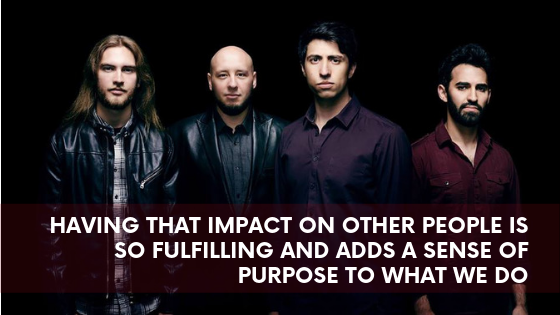
We want to continue making honest music that’s reflective of how we’re feeling at that time, and trust that it will resonate with people whose musical emotional receptors are similar to ours.
I don’t take for granted for one second how cool it is that there are people in countries we’ve never set foot in who listen to our music and feel inspired to want to have that effect on other people when they live their dreams and grow up to be professional musicians.
While we make this music for ourselves, seeing it having that impact on other people is so fulfilling and add a sense of purpose to what we do.
A Dream In Static had an incredible receptivity between music fans around the world, and from my perspective, I think it transformed the music preference of many metal fans.
How did you felt when you realize that the album reached a high relevance in the music scene?
Everyone is excited about the new album. In which stage are you guys working now? Any release date?
Anxiety and the new Earthside album
I figured you were going to ask me about the album eventually, Marlis.
You know, the new album is starting to come together and take on the sound and ethos of what it’s going to sound like. This album has taken way longer to create than we anticipated, and I apologize to our fans for that.
I think in part because of us being OCD, volatile personalities, it’s been difficult to work consistently towards a simple end goal of a final product and use every day to make tangible progress. We’re in our heads a lot, and working on spending less time agonizing over big decisions.

Being that sort of deeply sensitive, sort of fucked-up people is part of why people have responded to the highly emotional and complex nature of our music, so it comes with the territory that as artists, we’re not as consistent in the day-to-day as we’d like to be.
There have been bouts of depression that have hurt us at some points. I broke my wrist three weeks before we were supposed to record guitars and I had to take six months away from recording that part of the album. But ultimately, I see us in a place where we’re now moving forward with more purpose. I think we have some momentum that we’re hooked on maintaining.
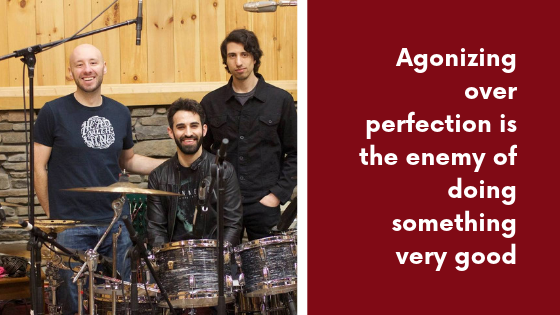
The biggest hangups to progress will also be the things that make our album most interesting: How will we handle vocals on this record? And what will be the wrinkles such as added orchestral or other instrumentation that makes our record stand out from just a typical rock record?
That first question is admittedly still a major mystery to us as the main tracks are mostly done on the record. The second question, we know mostly what we want, but there’s a lot of work to be done to deliver orchestral and other instrumentation on the level that can make this album special and sonically rich in a way that we feel will exceed the first record.
This album has that interesting instrumental component in more diverse ways and more spread out across the album rather than on A Dream In Static where there was just a bunch of orchestra on Mob Mentality and very little on most other songs, and hammered dulcimer on Entering the Light and no other special instrumentation on really any other song.

The overall mood is darker and more atmospheric. A Dream In Static is not a pop record, but it’s probably more overtly “catchy” than the new one is.
This new record creates more of a sound world that immerses the listener into it rather than with hooks, not that it has no hooks, but that’s less what this album’s strength is.
A Dream In Static is more auto-biographical and uses a lot of first-person singular frames in the lyrics. The new album confronts themes centering around the state of the world and humanity as a whole.
What did you learn from the experience gathered from the first record?
1. Agonizing over perfection is the enemy of doing something very good
We’re very much prone to agonizing over perfection be the enemy of doing something very, very good. And this can lead to lots of anxiety and indecision and things taking a very long time. We’re learning this again on the new album, but I’m hopeful we’re learning it well enough to be more decisive and efficient when we make the third album.
2. What we want our future albums to sound like
I think we learned better what we want our future albums to sound like and recorded this next one to match that. While there are a lot of things about A Dream In Static that we’re very proud of, Ben had a more defined sense of what he wants his drums to sound like, especially in his snare sound.
3. The saner we’re going to feel, the more sustainable this project can be
We realize for the longevity of Earthside, the more things we can control internally rather than rely on people outside the band, the saner we’re going to feel, and the more sustainable this project can be.
So while we still want to have a collaborative spirit, it’s important to adapt our model to a place where we’re less dependent on lots of other people saying ‘yes’ for us to be able to move forward.
Having such volatile and sensitive personalities in the band makes us struggle to be an effective successful band as a business, but also helps us making music that is perhaps more emotional and powerful.
That’s a realization I’ve had recently about accepting ourselves as anxious people that take too long in making this album rather than being super frustrated by it, and I was happy to use your interview as a first opportunity to share that realization.
I think I gave you the most honest and vulnerable answers to a couple of questions that I’ve ever given an interviewer.
We were scouring the world for fellow sensitive souls who felt the music and felt life like we do.

